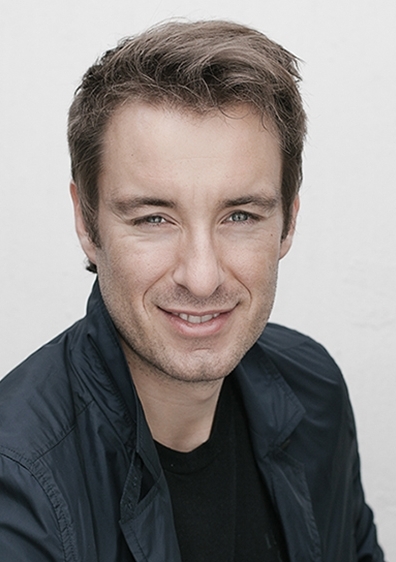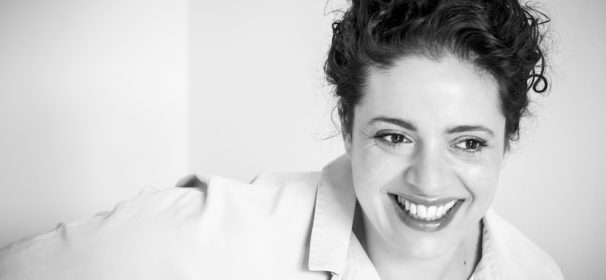The international opera scene is usually dominated by singers who chose a career as a musician at a very early stage. Perfect exceptions are rare – but the baritone Yuriy Yurchuk is one such case.
Ukrainian-born Yuriy Yurchuk is making his debut at the Savonlinna Opera Festival this summer, but his path to international opera stardom has been anything but typical. Now based in London, the Royal Covent Garden Opera soloist and regular at opera houses in Brussels, Copenhagen, Zurich and in the Netherlands saw his first opera at the age of 29. Before that, he had a demanding career in the world of finance.
‘My family in Ukraine was poor and there were virtually no opportunities for cultural activities’, says Yurchuk. ‘I was a teenager when my music teacher in Kyiv told me that I was not destined to be a singer. I just couldn’t reach the notes she wanted me to sing. In the Soviet system at that time, there was no negotiation and no other way forward.’ So the talented young man had to turn his ambitions in another direction completely. Yurchuk graduated from the Kyiv School of Economics and started working in that field. He was offered a job by one of the world’s four largest accountancy firms, PricewaterhouseCoopers (PwC).
‘I was a teenager when my music teacher in Kyiv told me that I was not destined to be a singer.’
In the career pipeline to Chicago
A successful career as a PwC mergers and acquisitions manager specialising in corporate finance, starting in Kyiv, took him to the United States. Alongside his demanding work in a new environment, he needed a leisure activity. And then it happened. ‘I met a singing teacher by chance and told her about my previous experiences. She encouraged me to try again.’ The new teacher immediately heard that Yurchuk had a voice and made her student realize what had gone wrong in Kyiv. ‘You’ve got it all wrong. You’ve been trying to sing like a pop tenor, even though you have a low voice! I’ll teach you to sing properly.’

Soon, Yurchuk’s talents led his teacher to consider how best to take her student forward. She entered his pupil in a singing competition, which she hoped would give Yurchuk useful feedback. The competition was judged by New York City Opera bass-baritone Marc Embree, who was also a professor at DePaul University in Chicago. Feedback was certainly provided. Embree wrote a long list of shortcomings: the arms were tense, the voice was not placed correctly, the posture was incorrect, and so on. But he also noted that there was something special about the voice.
The hobby takes over
Singing as a hobby continued under Embree’s guidance, but still alongside the day job. In the second and third years, his studies became more serious and PwC offered Yurchuk the opportunity to work part-time. He was remarkably well prepared to work in a goal-oriented way as a singer. ‘I was used to long working days and the discipline they demanded. I knew what it was like to work 16-hour days, change shirts and then carry on.’ There was a lot to learn, starting with history and theory. It was also important to learn patience. ‘Now I had to understand that you can’t force the voice. At the beginning I might practise for hours and then be surprised when the next day I couldn’t manage to sing at all.’
In the 2014–15 season, Yuriy Yurchuk was selected for the Jette Parker Artists Programme at the Royal Opera House in London. In 2017 Hugh Canning, critic of The Times, wrote: ‘but the finest voice on stage belongs to Yuriy Yurchuk, who sings Rodolfo’s aria with immaculate Italianate line.’
Whispering in the wings
Yurchuk’s exceptional background has not been an easy thing for everyone in the opera world to accept. ‘I know there has been some drama behind the scenes, but it’s the auditions that count. I’ve had to prove myself time and time again’, he says, but he also acknowledges the great support he has received from the opera community. He was not intimidated by stepping out onto big stages and facing an audience. He was used to performing and knew how to apply his concentration on the opera stage. His previous experience of salsa dancing has helped him to learn stage choreography.
‘I know there has been some drama behind the scenes, but it’s the auditions that count.’
The first opera Yurchuk saw was Offenbach’s Tales of Hoffmann in Chicago. ‘The piece completely blew me away. I fell in love with opera in a flash!’ Today Yuriy Yurchuk is one of the most sought-after baritones in the world but he still remembers where he came from. His studies and career as a singer have not been the only option. ‘To be honest, I still do some financial work. It keeps the other side of my brain fresh’, Yurchuk smiles.
Two Don Giovannis this summer
The Savonlinna Opera Festival has been on Yurchuk’s schedule for a long time. ‘The visit was already planned for the summer of 2020, but then Covid messed everything up. After that, I had to reschedule the visit again because of my own commitments.’ Eventually a date for the visit became available, and this coming summer he will alternate with Waltteri Torikka in the title role of Don Giovanni.
This role has accompanied Torikka for a long time. ‘Of all the roles I’ve done, Don Giovanni has the longest history. It was my graduation role at the Royal Danish Opera Academy in Copenhagen. Incidentally Henning von Schulman, who is singing Leporello this summer, sang the Commendatore in the same production.’ He says he has acquired the necessary knowledge and tools to enter the role’s inner world and to present it on stage from, among others, the director Erik Söderblom, and notes that he is now performing the role for the fifth time.
‘Over time, new layers are added to the role, as my voice and my way of thinking become more mature’, says Torikka. ‘There’s something demonic about the guy […] Don Giovanni’s morals, ethical values and choices do not necessarily always reflect neighbourly love. There is certainly a large measure of narcissism in him, but on the other hand he is also extremely charming!’ Torikka emphasises the amount of acting that is needed in a role whose personality is interesting, to say the least, and points out that Mozart has also built a certain lightness into the character. ‘All these colours should be discernible in this character.’
For Yuriy Yurchuk, too, the character is not black and white. ‘Of course, the director’s vision is the deciding factor, but it’s actually good for the singer to have several versions of the character, one of which can be adapted to the director’s approach. He is often seen as evil, but you can’t approach the role by thinking only of evil. He is both good and evil.’ Yurchuk points out that Don Giovanni considers himself to be a good guy. ‘He goes beyond the norm, thinking that he is giving the gift of love to everyone, albeit with no regard for the consequences and without looking back.’ Savonlinna will experience two interesting interpretations of the multi-dimensional character that is Don Giovanni.
Original text in Finnish: Hannele Eklund
Don Giovanni at Olavinlinna Castle on 10th, 13th, 20th, 23rd, and 25th of July, tickets and additional information here.



